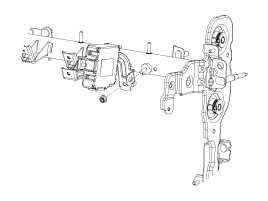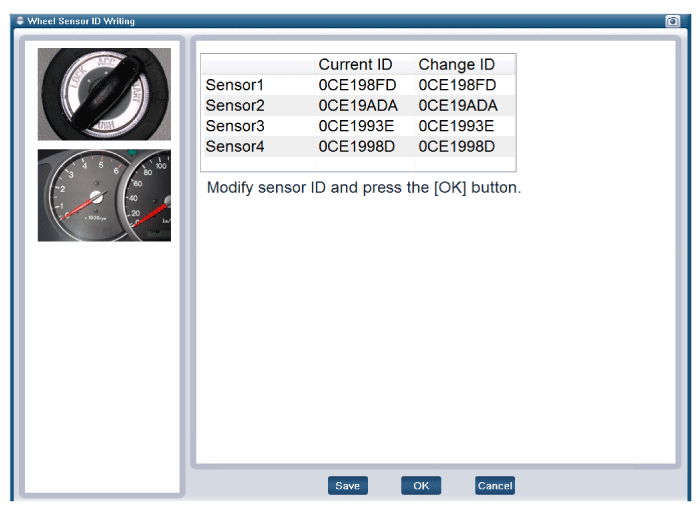 Kia Optima: Replacement
Kia Optima: Replacement
When the receiver first arrives for replacement:
| 1) |
It will be in Virgin
State. |
| 2) |
It will not be configured
for any specific platform. |
| 3) |
It will not have any
sensor ID's memorized. |
|
|
It is important to make sure that the correct receiver is used to replace
the faulty part i.e. it must be Low Line in order to have the correct inflation
warning thresholds set. |
| 1. |
Disconnect vehicle battery. |
| 2. |
Remove the glove box. (Refer
to BD group - "Crash Pad")
|
| 3. |
Remove faulty part and fit bracket
assembly to new part.

|
| 4. |
Secure new part to vehicle and
fit connector. |
| 5. |
Re-connect battery and turn Ignition
on. |
| 6. |
After replacing the receiver,
learn by using self-diagnosis device(GDS). |
[Wheel Sensor ID Writing (Wireless) initialization]
![[Wheel Sensor ID Writing (Wireless) 1]](images/books/1268/stfss2015n.gif)
[Wheel Sensor ID Writing (Wireless) 1]
![[Wheel Sensor ID Writing (Wireless) 2]](images/books/1268/stfss2016n.gif)
[Wheel Sensor ID Writing (Wireless) 2]

As manual for diagnosis methods by using diagnosis device, the main contents are
as follows:
1.
Connect self-diagnosis connector(16pins)
located in the lower of driver side crash pad to ...
See also:
Replacement
1.
Loosen the wheel nuts slightly.
Raise the vehicle, and make sure it is securely supported.
2.
Remove wheel nuts, rear wheel
and tire from rear hub.
Ti ...
Chart 1
...
Rear Seat Armrest
This armrest is located in the center of the rear seatback. Pull the armrest
down using the strap provided on the armrest.
To open the armrest cover, press the button on the top of the cover and ...
 Kia Optima: Replacement
Kia Optima: Replacement![[Wheel Sensor ID Writing (Wireless) 1]](images/books/1268/stfss2015n.gif)
![[Wheel Sensor ID Writing (Wireless) 2]](images/books/1268/stfss2016n.gif)

 Diagnosis procedure by using diagnostic device
Diagnosis procedure by using diagnostic device

